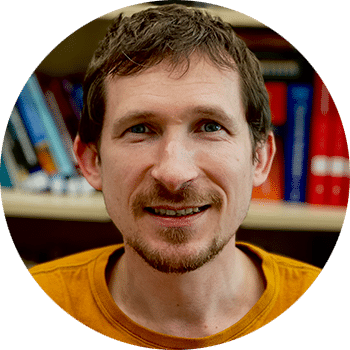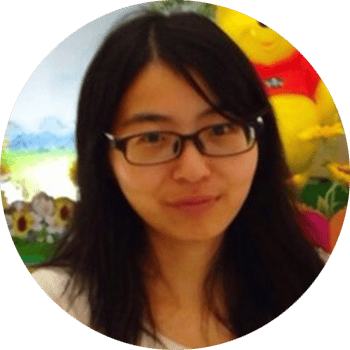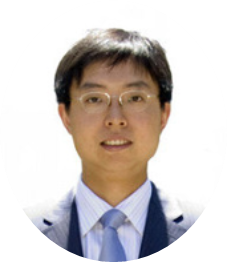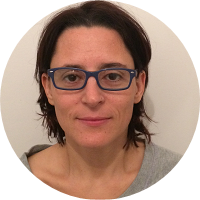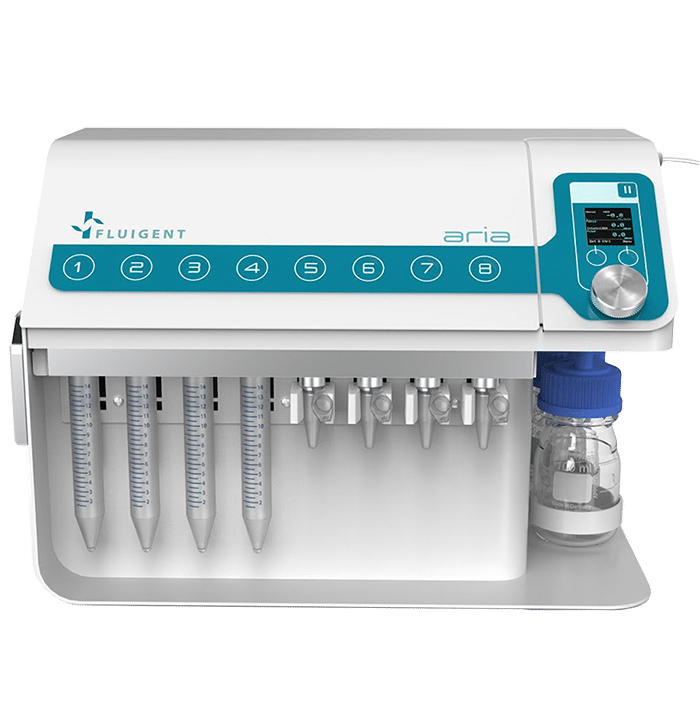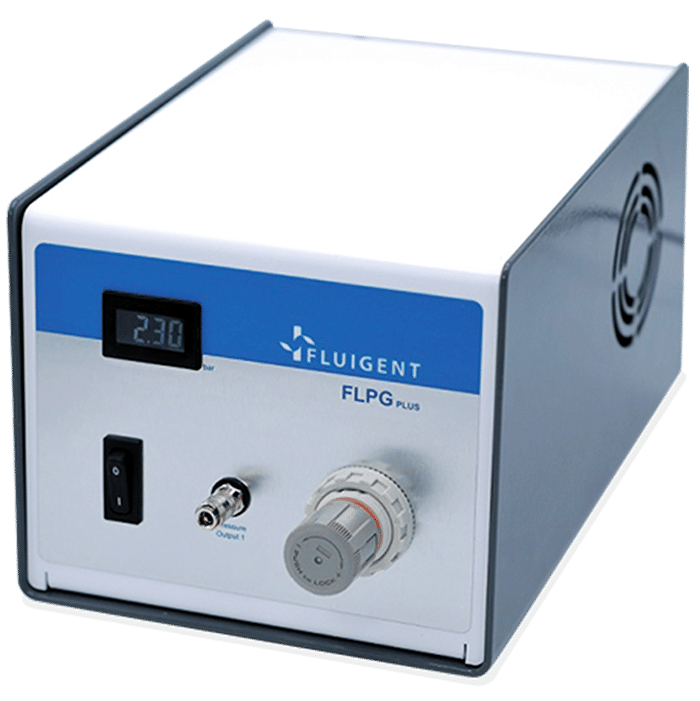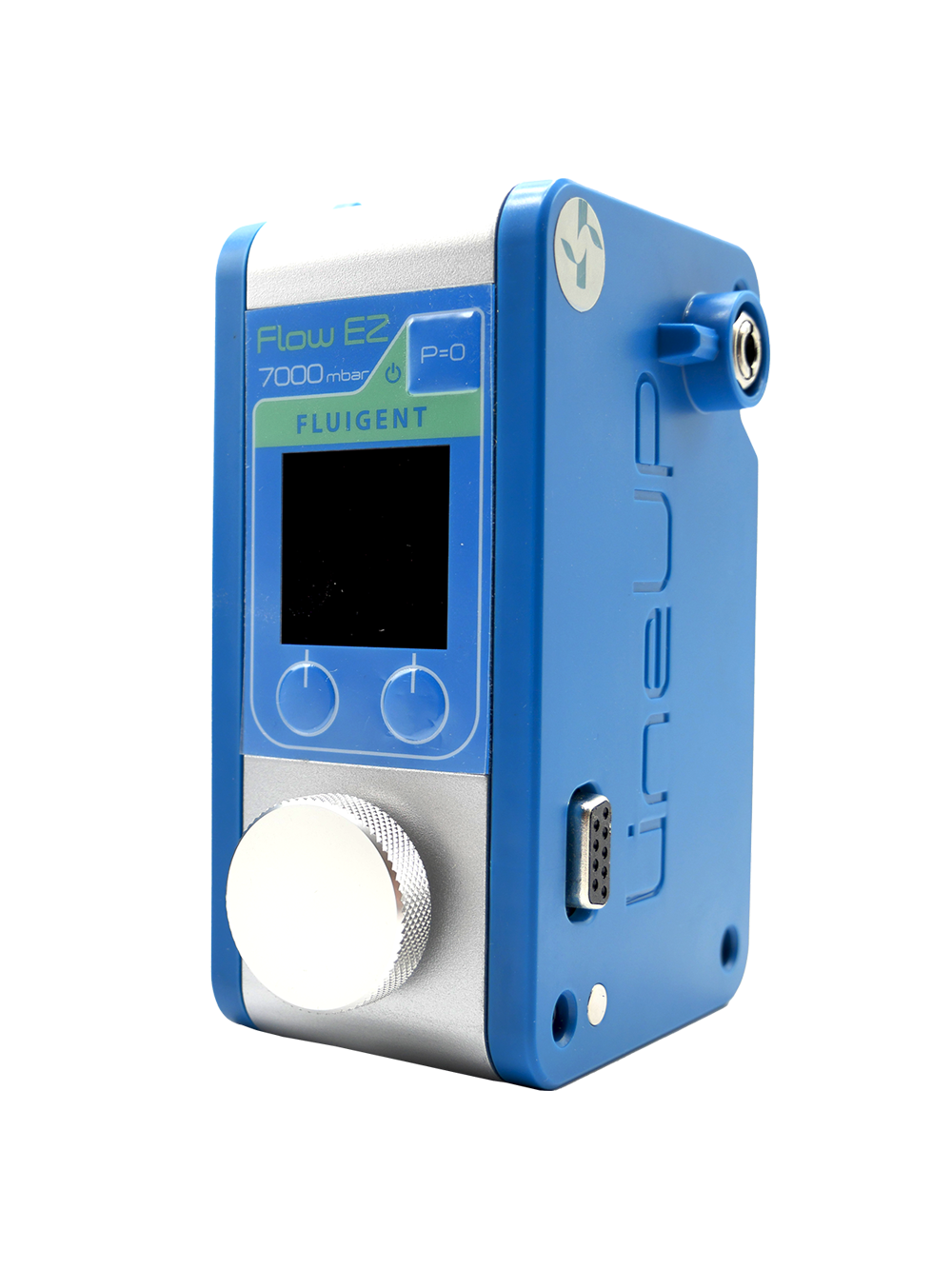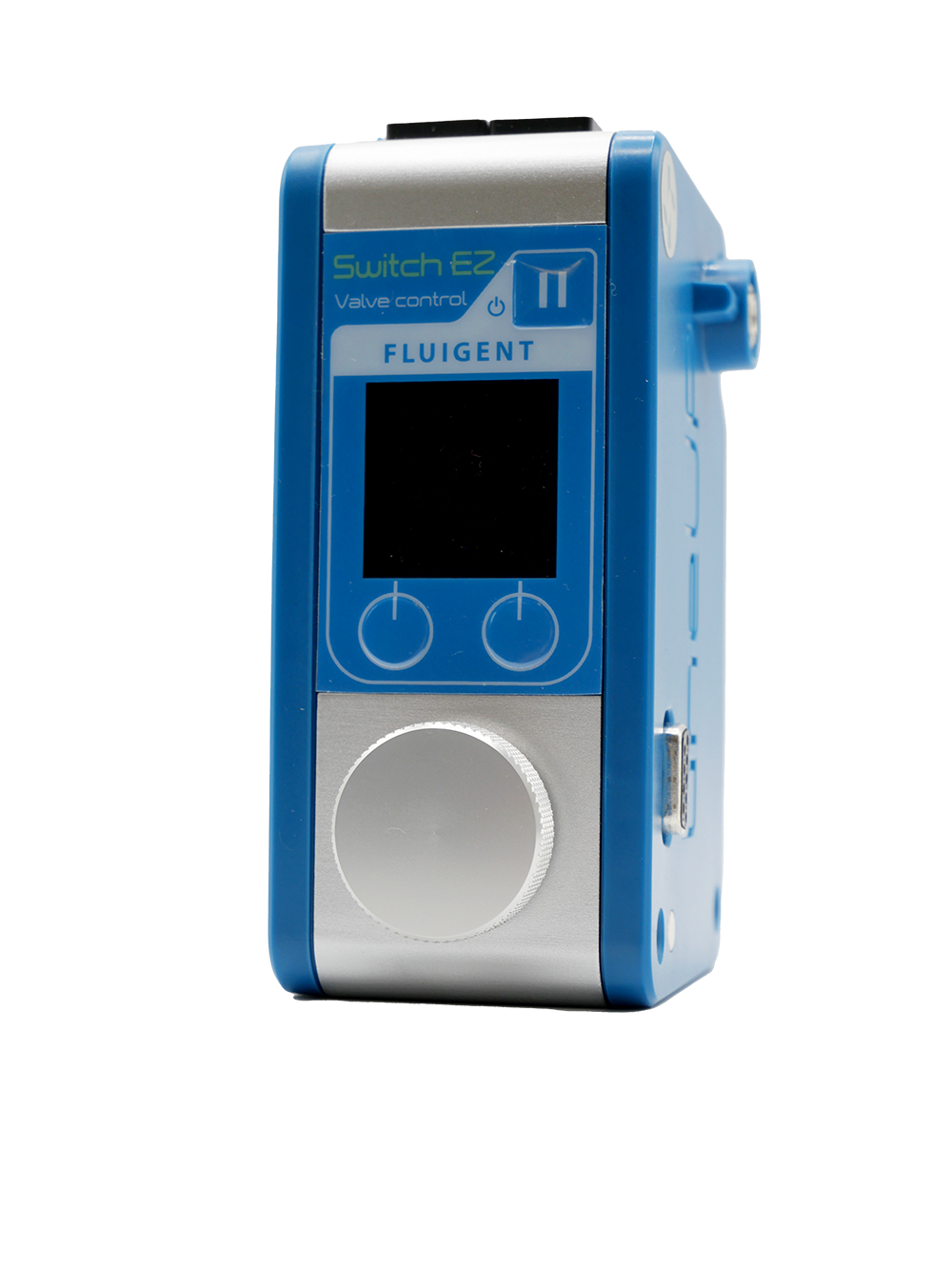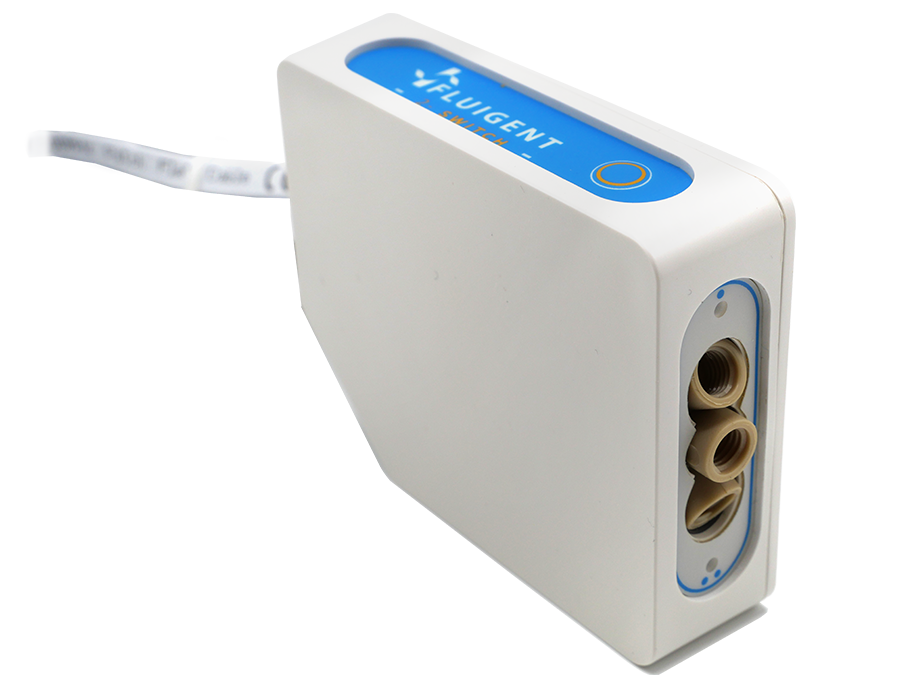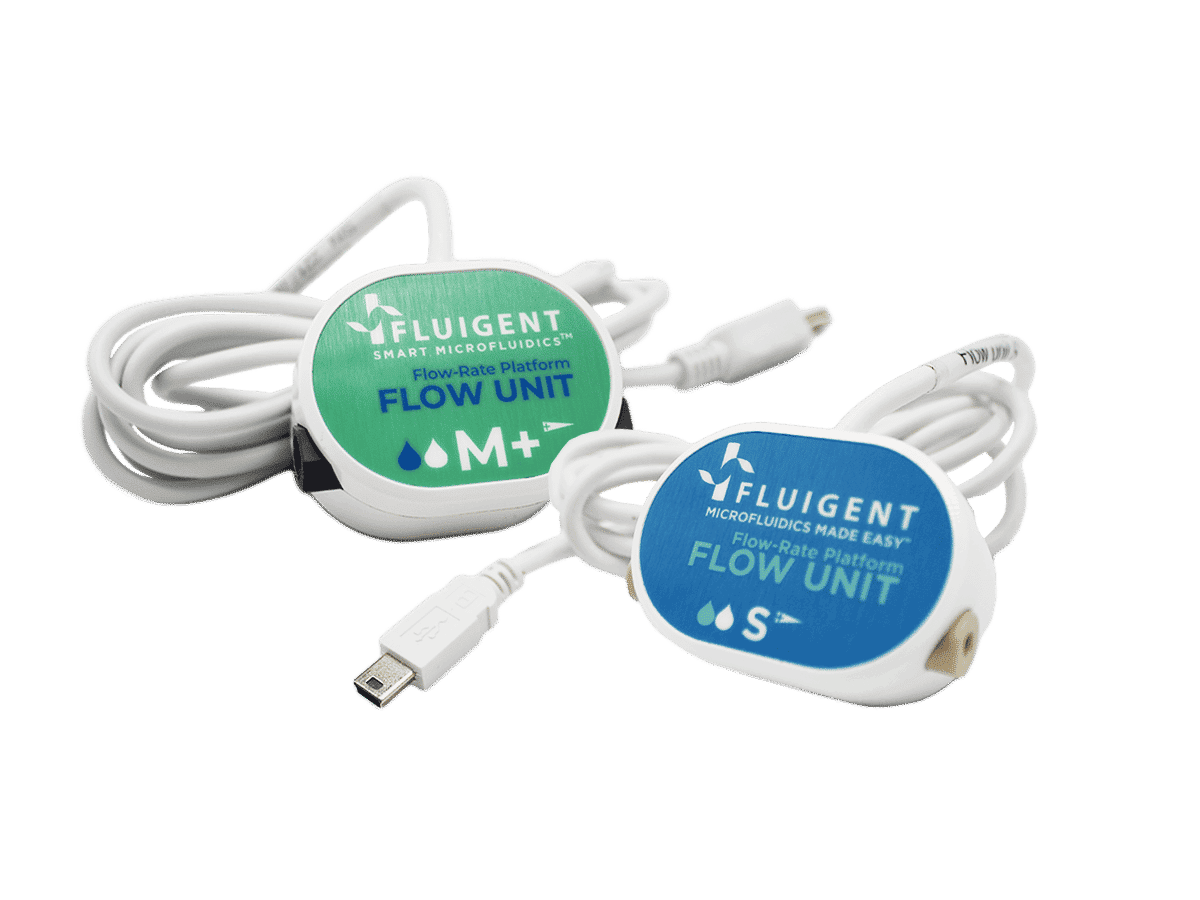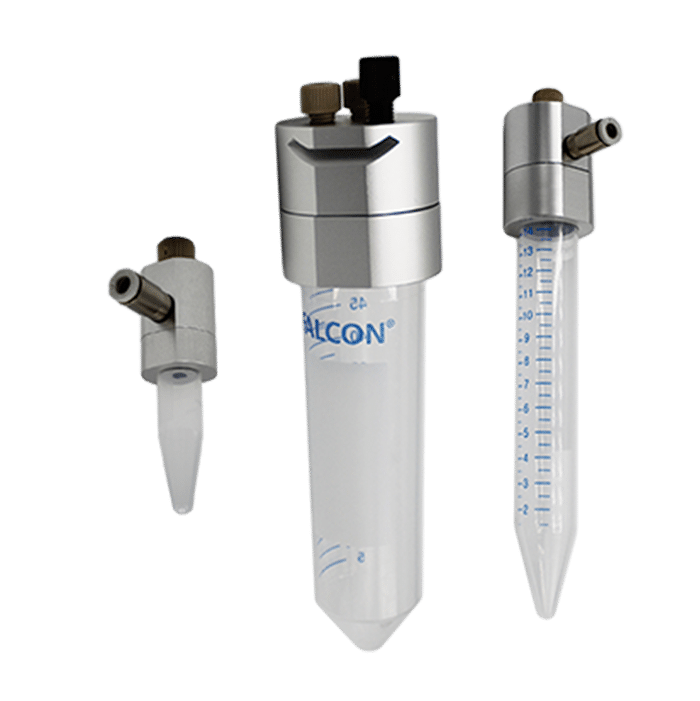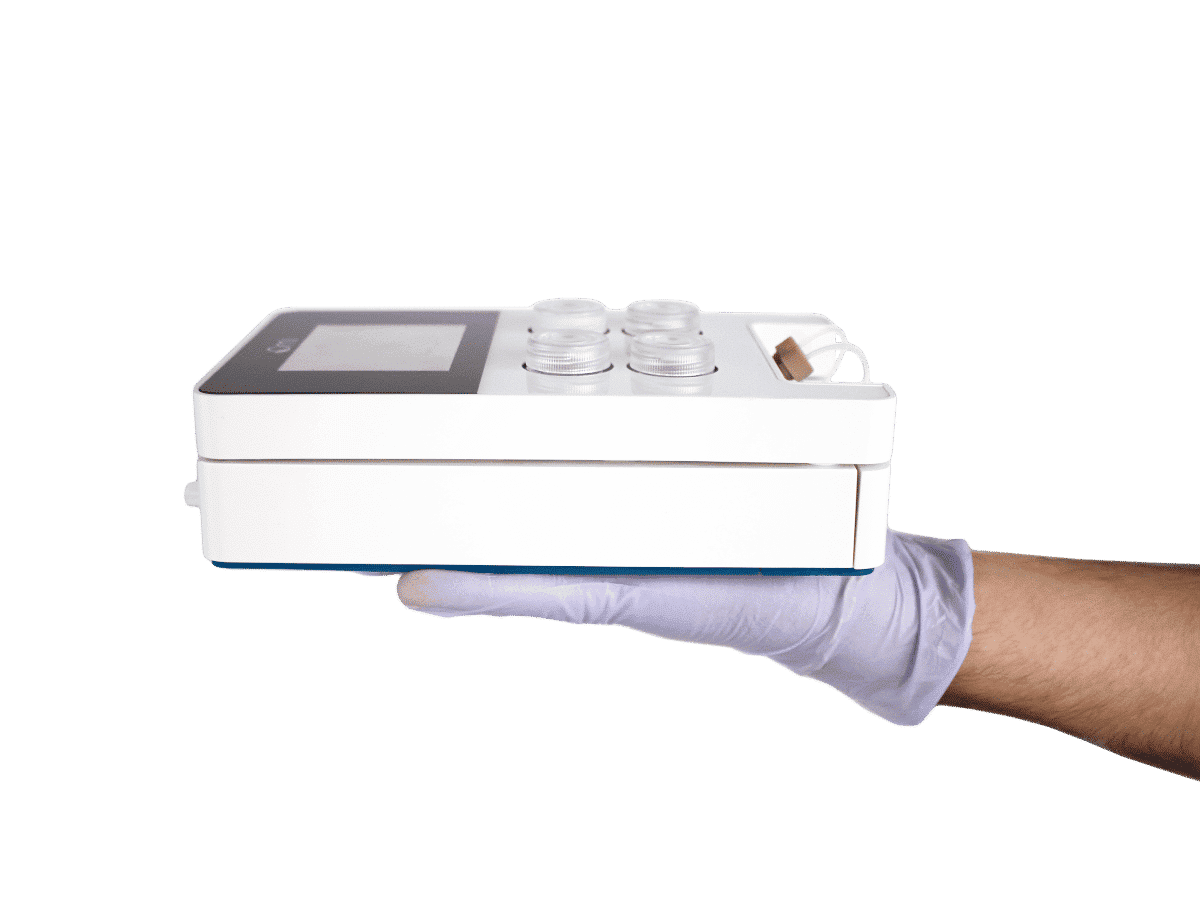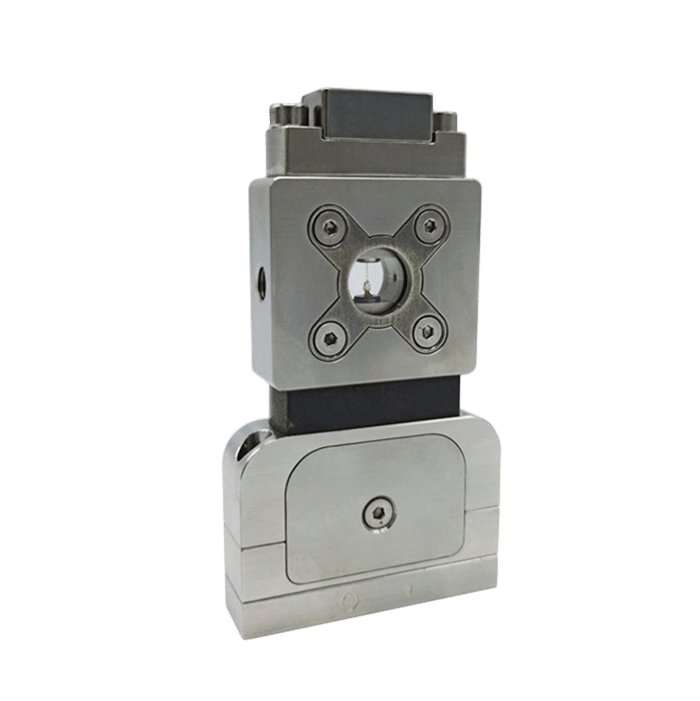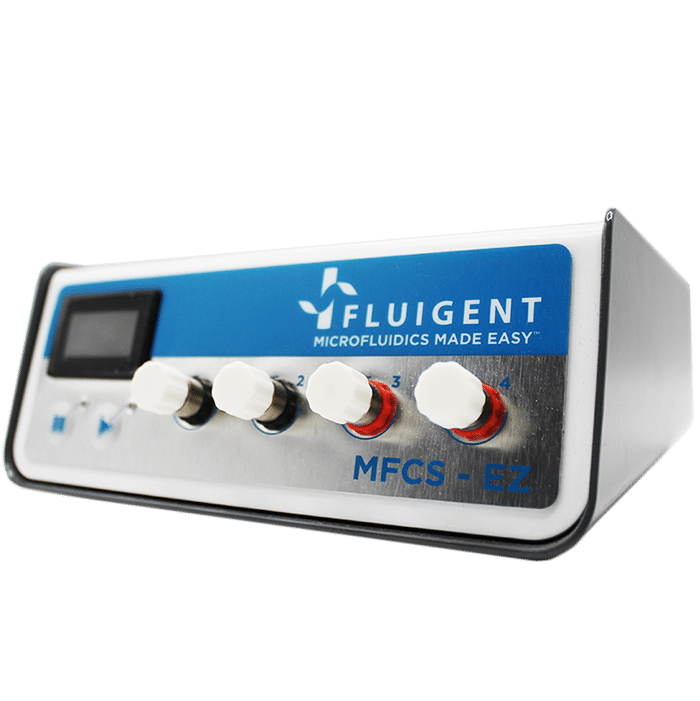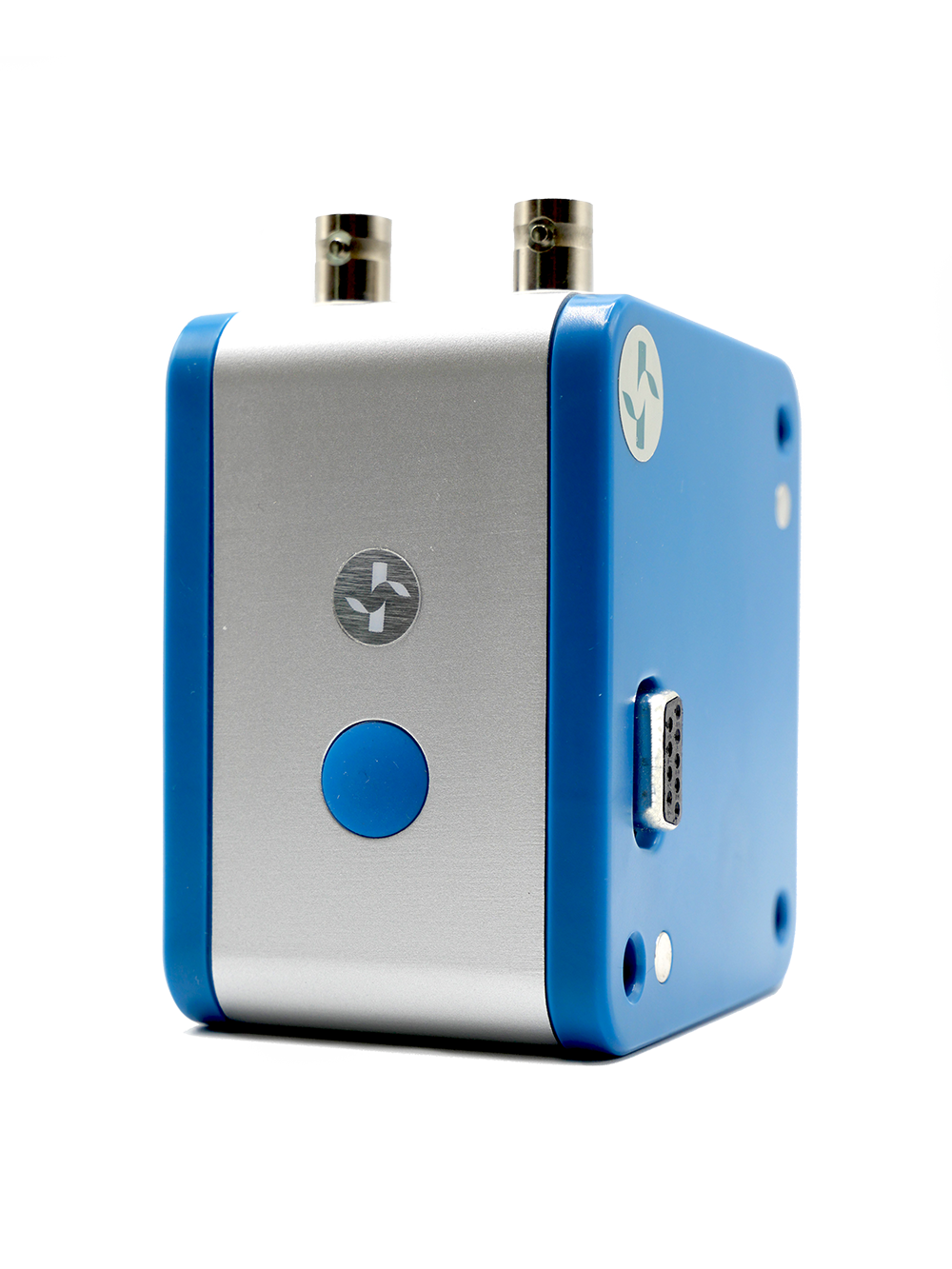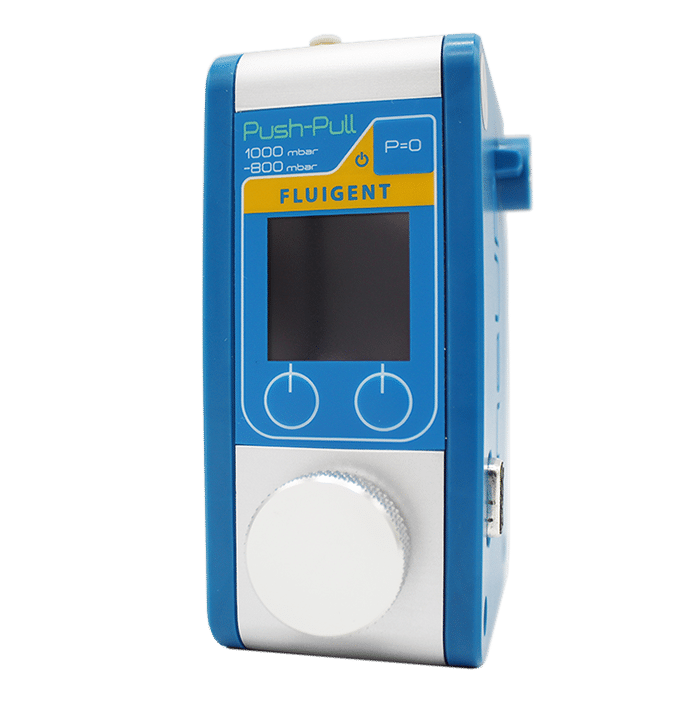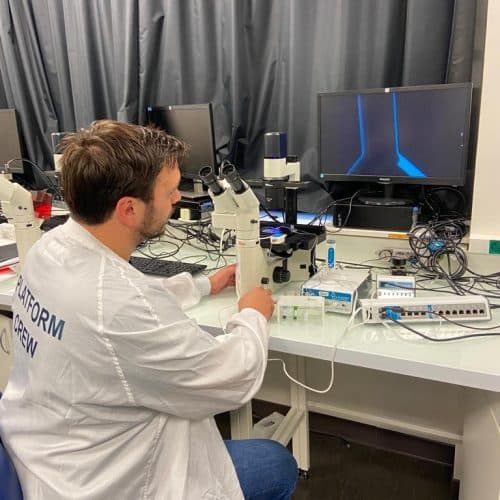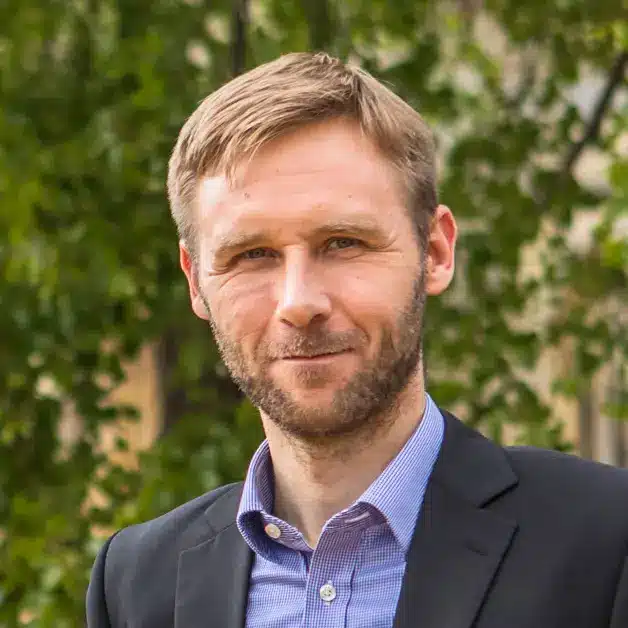Want to visit Fluigent’s products in your university? Contact Fluigent’s brand ambassador!
In need of help, don’t hesitate to contact Fluigent’s corresponding sales representative.
Ambassador may reject the product visit request from the researchers who are out of Ambassador’s own university.
University College London, UK
Dr Colin J Chu
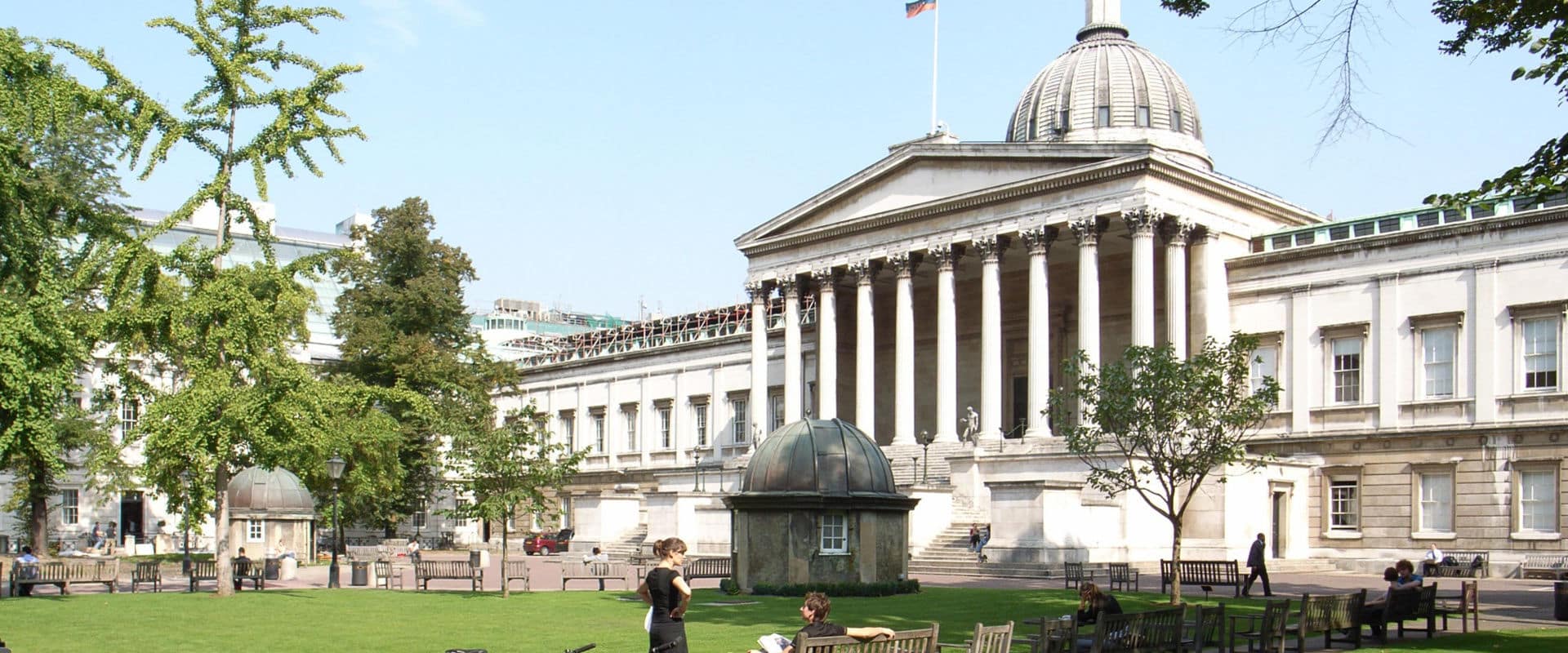
Colin is an academic ophthalmologist at UCL Institute of Ophthalmology funded by the Wellcome Trust as a Clinical Research Career Development Fellow.
He was an undergraduate at the University of Cambridge prior to medical school at Oxford University and undertook his PhD at UCL with Prof Robin Ali. Subsequently he moved to the University of Bristol as a NIHR Academic Clinical Lecturer working with Prof Andrew Dick.
He has spent time in the US at the University of Rochester hosted by Dr Jesse Schallek and as a Fulbright scholar at the National Institutes of Health working with Dr Ron Germain on advanced tissue imaging approaches.
His ongoing research spans gene therapy and in vivo imaging of immune cells using adaptive optics, OCT and fluorescent dye labelling to better understand ocular inflammation.
He is an Honorary Consultant Ophthalmologist at Moorfields Eye Hospital with his clinical practice in Uveitis.

“As a clinician and immunologist with an interest in imaging, I was involved in developing a new technique for multiplexed immunohistochemistry. We wanted to automate the process by adding a microfluidic solution, but I had no experience with this technology. The ARIA system fit our needs and was incredibly simple and intuitive to use. The software is well-designed and readily interfaced with our microscope. Fluigent provided support throughout setup and transformed what seemed a large undertaking, into an incredibly simple task.”
Colin Chu, University College London
University of Manchester, UK
Prof. Artem Mishchenko
Artem Mishchenko is a professor of condensed matter physics, Faculty of Science and Engineering, University of Manchester. He got PhD in Molecular Electronics in 2010 at the Faculty of Science, Bern University, Switzerland. He is a leading expert in physics of van der Waals materials. His research is centred on quantum phenomena in a large variety of systems: from quantum transport in van der Waals materials to molecules and ion transport to the structure of water in confined geometries.
He has published over 100 papers, nearly half in high-profile journals such as Science, Nature and Nature group, PNAS, Nano Letters, and PRL. His h-index is 49, with >27000 citations, according to Google Scholar.
He has been selected Highly Cited Researcher by Clarivate Analytics for the past five years – from 2018 to 2022. He has been recognised internationally – he received the prestigious EMFL Prize in 2018 and the Blavatnik Award for Young Scientists in 2021, for “Revealing unusual quantum phenomena in vertical, multilayer stacks of two-dimensional materials, in particular those that hold great potential in the development of novel electronic transistors for light-emitting diodes (LEDs), high-speed electronics, and information storage.” He has secured major external funding, including the highly prestigious ERC Consolidator Grant (2020-2025), and EPSRC Early Career Fellowship (2016-2021).
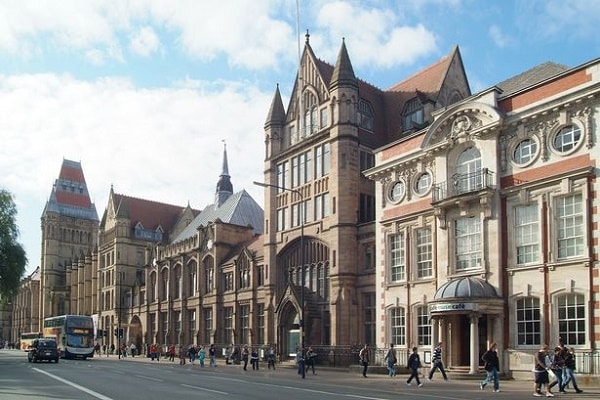
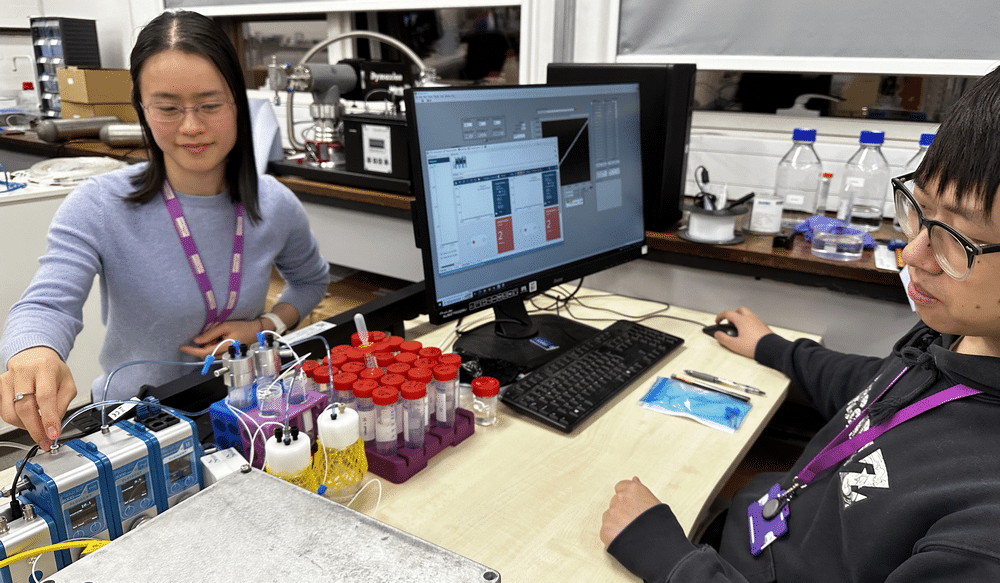

“We are really happy with Flugent microfluidics control systems: they are very EZ to use; they are also robust and reliable. We want to highlight in particular the user-friendliness of the software (OxyGEN), and the ease with which one can implement their own third-party programs to embed Fluigent controllers to a bigger setup comprising multiple units from different manufacturers. .”
Prof. Artem Mischenko, University of Manchester
Imperial College London, UK
Dr. Huizhi Wang
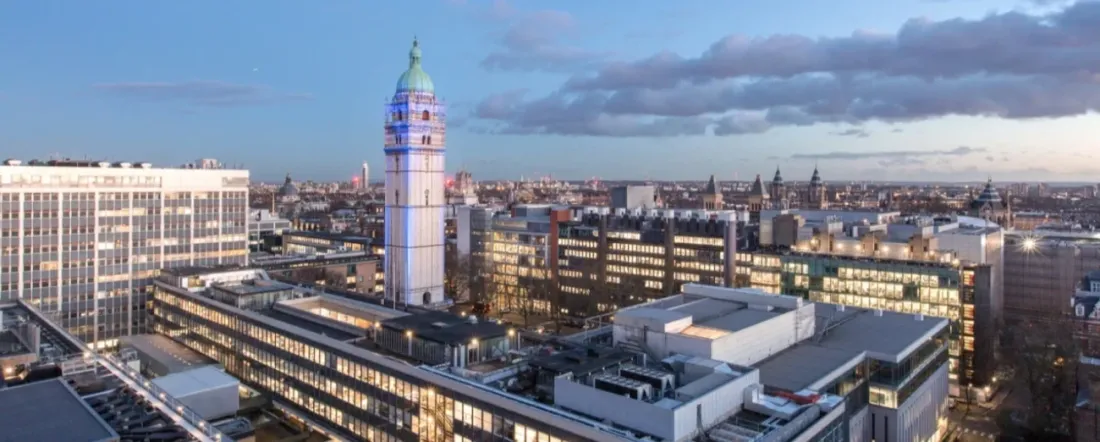
Huizhi Wang is a senior lecturer in the Department of Mechanical Engineering and a member of the Electrochemical Science & Engineering Group. She received her PhD in Mechanical Engineering from the University of Hong Kong in 2012. She then worked at the University of Hong Kong as a postdoctoral fellow until 2014. Prior to joining Imperial College, she was an assistant professor in the School of Engineering and Physical Sciences at Heriot-Watt University, Edinburgh.
Her research interest lies in electrochemical energy engineering with a particular focus on the thermofluid aspects of electrochemical energy conversion and storage systems including fuel cells, batteries and electrolysers. She is also interested in advanced manufacturing (e.g., microfluidic-based fabrication, additive manufacturing) and diagnostic techniques for electrochemical energy applications.
She has over 100 journal publications and 8 patents. Her research is supported by EPSRC, EU H2020, Scottish Funding Council and industrial sponsors.

“We came to Fluigent when we were building an automated microfluidic platform for screening chemical reactions. Fluigent products are powerful in precise control of the flow conditions and can guarantee the performance of our platform. The pump system is user-friendly and can be extended to complex experimental systems where multiple pumps are needed. The above merits have made our experimental design process smooth and easy.”
Dr. Huizhi Wang, Imperial College London
University of Oxford, UK
Dr. Mootaz Salman

After graduating with a Bachelor of Pharmacy with Honours (BPharm(Hons)) from the University of Mosul, I studied for Masters and Doctoral degrees at Sheffield Hallam University. Working with Professor Nicola Woodroofe and Dr Matthew Conner, my PhD project investigated the mechanisms of water channel translocation in human brain cells. I discovered a novel pharmacological framework for developing new drugs to treat traumatic brain injury, brain oedema and stroke.
I held my first postdoctoral fellowship at Harvard Medical School and Boston Children’s Hospital working with Professor Tom Kirchhausen. The project was in collaboration with Biogen®. I aimed to understand the cellular physiology of the blood-brain barrier (BBB) in order to exploit the mechanisms involved in improving the effectiveness of therapeutic antibodies. The project involved developing an in vitro microphysiological 3D model that can be used for multiple high-resolution imaging modalities. I used transmission electron microscopy (TEM), 3D live fluorescence imaging, spinning disk confocal microscopy and advanced lattice light sheet microscopy (LLSM) to study the trans-BBB trafficking of fluorescently-labelled therapeutic proteins and antibodies.
I joined the Wade-Martins group in late 2020. As part of Oxford Parkinson’s Disease Centre (OPDC), the aim of my project was to contribute to the development of novel therapeutic target discovery for Parkinson’s. I used CRISPR/Cas9 genome engineering of highly physiologically-relevant human iPSC lines from Parkinson’s patients differentiated into dopaminergic neurons to investigate molecular disease mechanisms and validate new therapeutic hits. The project was in collaboration with GSK® which offered an exciting opportunity to work at the translational interface of academic and industry target discovery and drug development.
Research Interests
I am a Research Lecturer and Leverhulme Trust Fellow. I am interested in investigating mechanisms of blood-brain barrier (dys)function in neurodegenerative diseases using patient-derived stem cells, gene editing (CRISPR-Cas 9) and organ-on-a-chip technologies.
Institut Pasteur de Lille, INSERM / CIIL, FR
Dr. Alexandre GRASSART
At the borders between microbiology, mechanobiology and bioengineering, my research aims to determine the role of physical forces during host-microbe interactions. As an ATIP-Avenir laureate and INSERM researcher, we established our laboratory on the campus of the Institut Pasteur of Lille within the Center for Infection and Immunity of Lille. We are using extensively microfluidics, live-cell imaging, and stem cells-based approaches to develop state-of-the-art in vitro models biomimicking the microenvironment of human organs on a chip. These innovative microphysiological systems allow us to decipher new mechanistic pathways used by pathogens to infect human intestinal and respiratory tissues.

Precision, robustness, and fidelity are essential in our research on organ-on-chip technologies developed in the lab. Using EZ pressure controllers for many years, I keep being amazed by Fluigent for delivering all these qualities in their pressure-based microfluidics products. On top of this excellence, EZ lines are very user friendly!
Dr. Alexandre GRASSART, Institut Pasteur de Lille
University of Bari “Aldo Moro”, Department of Pharmacy – Pharmaceutical Sciences, IT
Prof. Nunzio Denora
Nunzio Denora received a degree in Chemistry and Pharmaceutical Technology at the University of Bari “Aldo Moro” in 2001 and obtained his PhD in Pharmaceutical Technology from the University of Palermo in 2004. After a postdoctoral position at the Department of Pharmaceutical Chemistry of Kansas University, US (2005-2006), under the supervision of Prof. Valentino J. Stella, he was appointed as an assistant professor and research scientist in Pharmaceutical Technology at the Department of Pharmacy – Pharmaceutical Sciences of the University of Bari.
Since 2023 he is a full professor in Pharmaceutical Technology heading a research laboratory of advanced drug delivery systems. He is a Scientific Advisor Board Member for pharmaceutical companies and for the European Paediatric Translational Research Infrastructure – EPTRI. He is the Coordinator of the Industrial PhD Course in “Sustainable technologies for medicines and diagnostics development” and is a board member for the Journal of Pharmaceutical Sciences and other journals in the pharmaceutics field.
His research concerns the development of drug delivery systems by using innovative technologies such as 3D printing, prilling technology and microfluidics techniques.
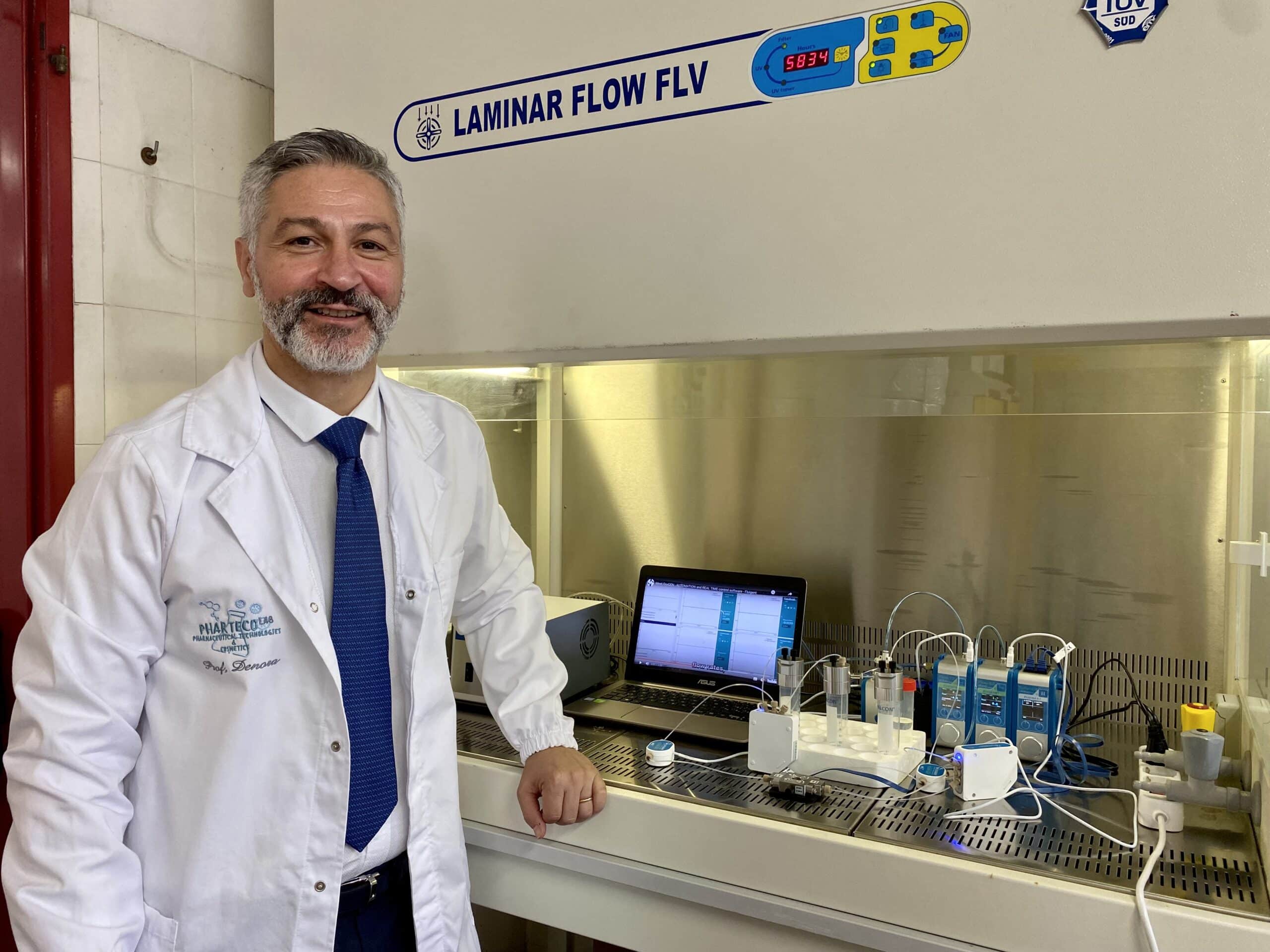
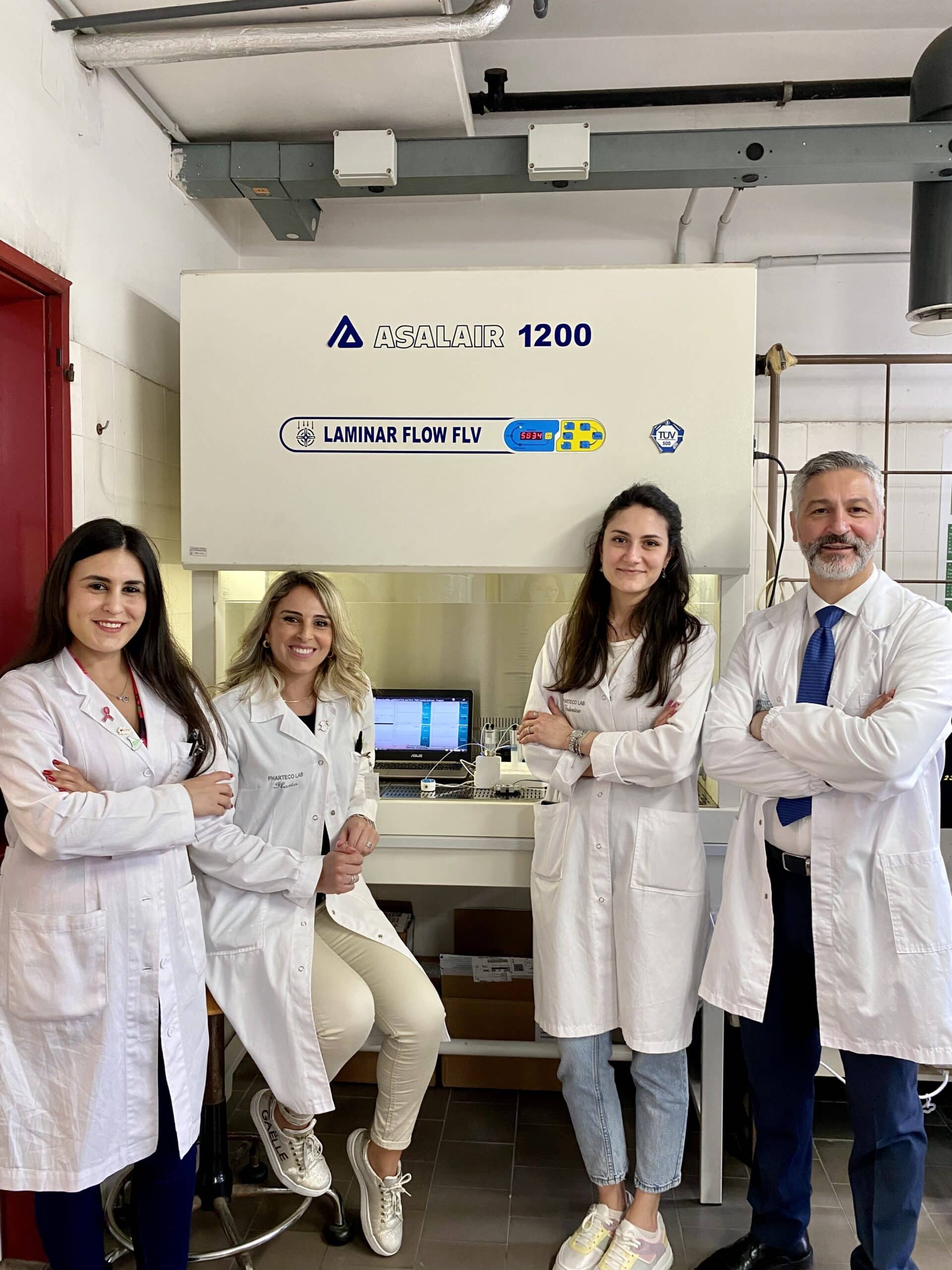
University of Lille, CNRS IEMN, HCS Pharma, FR
Dr. Anthony TREIZEBRE
Dr Anthony TREIZEBRE is an assistant professor at University of Lille 1 and researcher at the IEMN CNRS Institute begin 2007. After a first research topic dedicated to the signature of biological entities by high frequency spectroscopy (THz) in microfluidic environment. He has developed a track record expertise on micro-fabrication in clean room of instrumented microfluidic components with sensors and actuators.
During the last four years, he has acquired a real expertise on the conception of endothelial barrier on chip to study the interactions cellular and the development of “Organ on Chip” on the scope of many pathologies like Cancer, Diabetes and cardiovascular diseases.
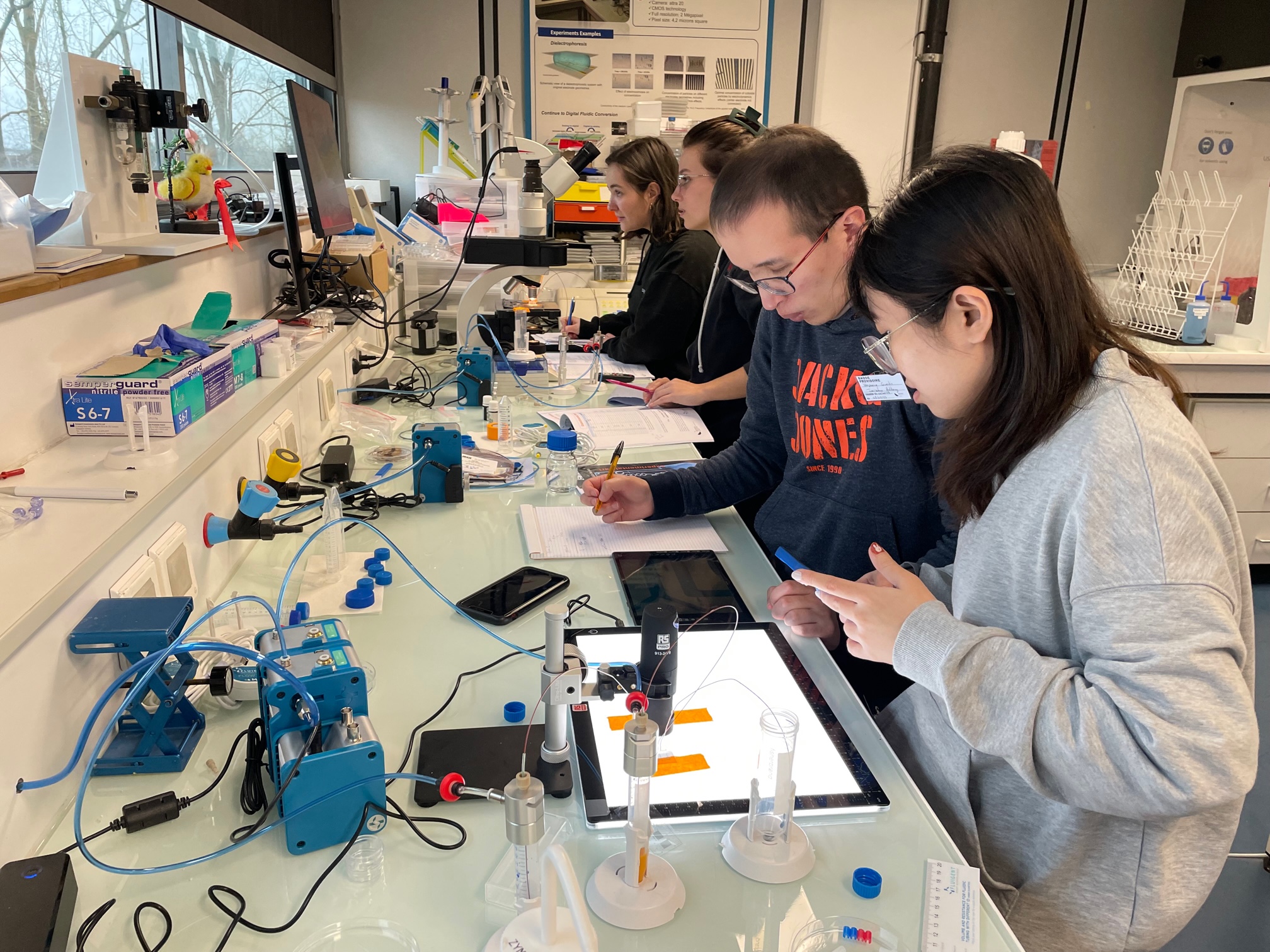
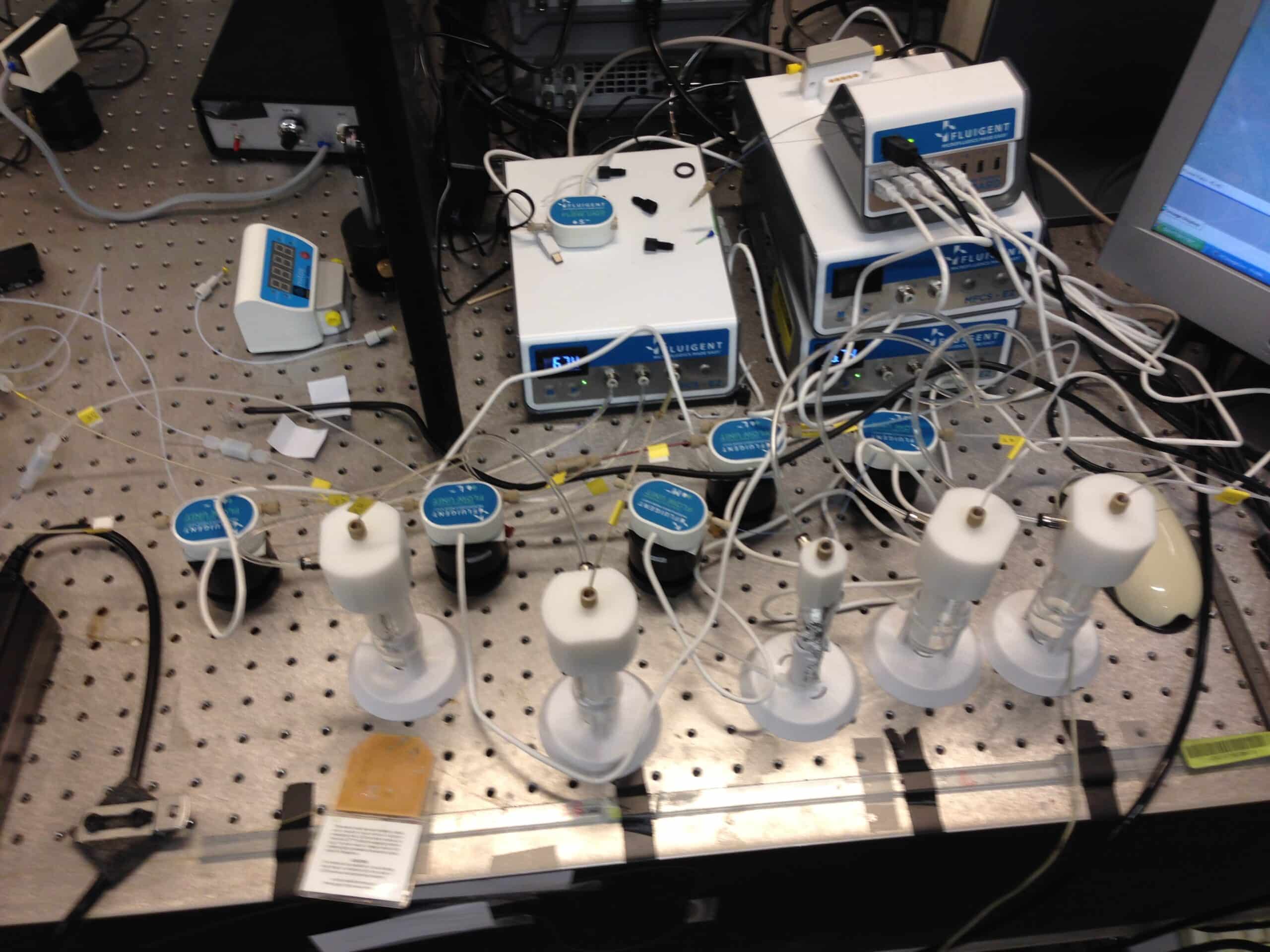

I’ve been using Fluigent systems on a daily basis for ten years now, in a wide range of applications (oncology, metabolism, pharmaceuticals), and I really appreciate their ease of use, robustness and precision. As a “fan” of this equipment, I was able to test the entire product range (pumps (EZ, MFCS), switches, flow Sensors) as well as platforms such as ARIA and the new OMI. An important point is the training of students, and to this end I’ve been running practical microfluidic work with flow equipment for the past 3 years, with extremely positive feedback from students. Last but not least, I’d like to emphasize the quality of the technical support and customer care provided by the Fluigent teams, which is extremely pleasant.
Dr. Anthony TREIZEBRE, University of Lille
CSEM, CH
Dr. Felix Kurth
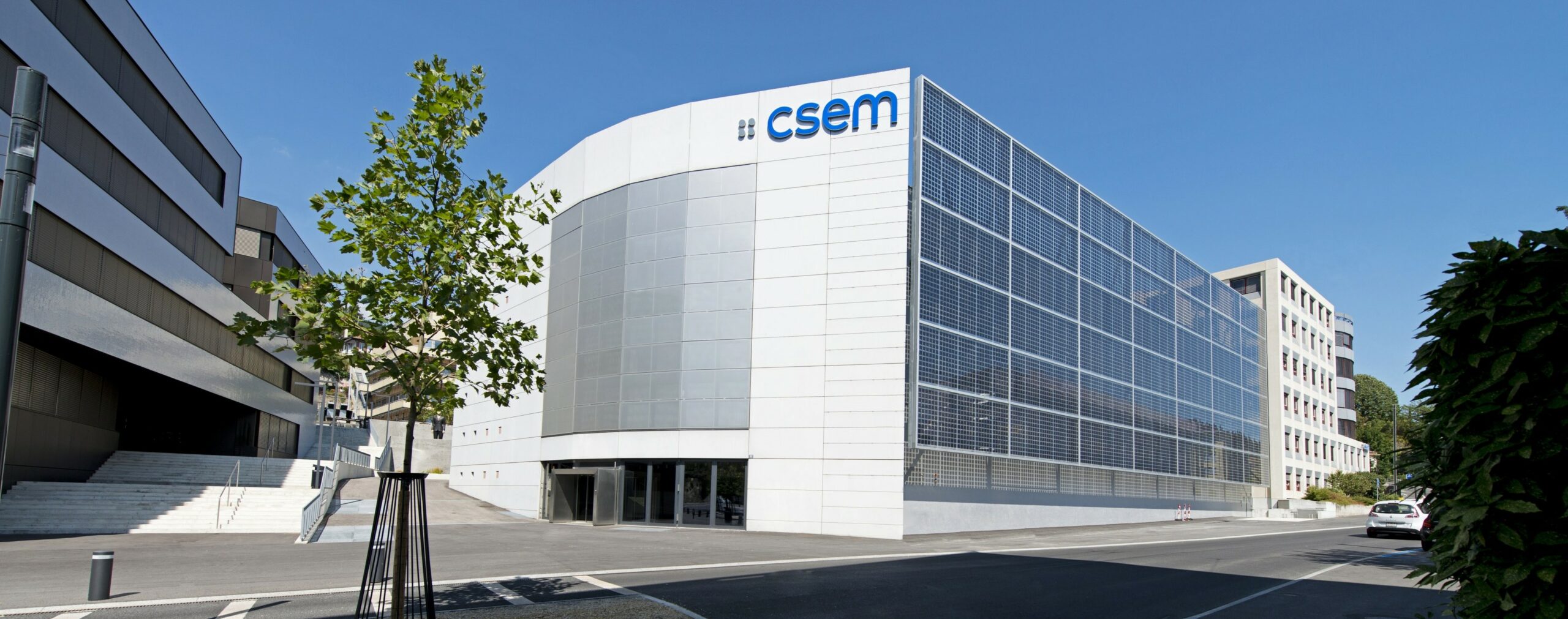
Felix is group leader at CSEM, a Swiss technology innovation center. The group Biosystems Engineering integrates the fields of single cell technologies, functional hydrogels & polymers, and printed electronics into systems for life sciences.
He received his PhD at ETH Zürich in Switzerland and continued a postdoctoral fellowship with Prof. Dittrich at ETH Zürich in Basel. Academic work included single cell mechanobiological studies as well as liposomes and cell derived vesicles for biosensing applications and regenerative medicine in close collaboration with the National University of Singapore.
After joining CSEM as R&D engineer and project manager, Felix focused on the development of electrochemical sensing systems for biomonitoring, organ-on-chip technologies, and exosome analysis development. The single cell technology activities complement the broad spectrum CSEM works on in the field of systems for life sciences that cover high-precision liquid handling, biosensing, 3D cell microsystems, and AI for life sciences among others.

The development for our partners is never alike, with the result that we can hardly leverage previously developed technology details for new challenges. Any instrumentation we use must thus be extremely versatile and adaptable to any equipment of ever-changing suppliers. We employ the Flow EZ system for a multitude of applications, for instance, droplet microfluidics, automated in vitro sampling modules, and even miniaturized setups for the validation of pressure resistance of medical implants. The system’s accuracy and precision as well as the high resolution of the set pressure thereby helps us to meet the requirements of our customers. For the automation of electrochemical sensor arrays we are working with the Aria system as it provides – once programmed – fully autonomous and automated test cycles. This helped us to tremendously decrease the amount of user training for our in-house development.
Dr. Felix Kurth, CSEM
Université Paris-Saclay – Institut Galien Paris Saclay (CNRS UMR 8612)
Dr. Thanh Duc MAI
Thanh Duc MAI is an associate professor of Analytical Chemistry at the Université Paris-Saclay. After his PhD in Analytical Chemistry (instrumental design and development) at the University of Basel (Switzerland), he continued his postodoral research at different institutions in France.
He was the founder and manager of the scientific platform CE-Vietnam to promote the research and training on capillary electrophoresis with contactless conductivity detection at different universities and institutions in Vietnam.
His current research activities focus on development of novel electrokinetic preconcentration and separation methods, conception of purpose-made microfluidic capillary electrophoresis instrumentation, magneto-immunoassays and lab-on-droplet. His research is towards sensitive and selective detection of biomarkers in biological matrices and characterisation of nanoparticles and bio-nano entities.
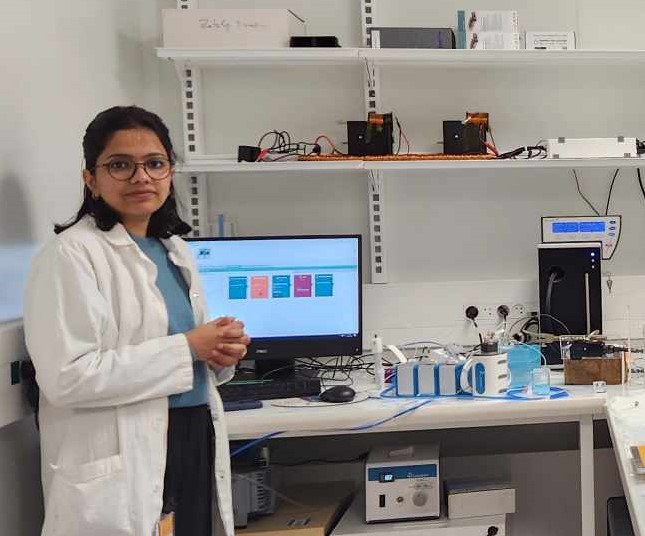
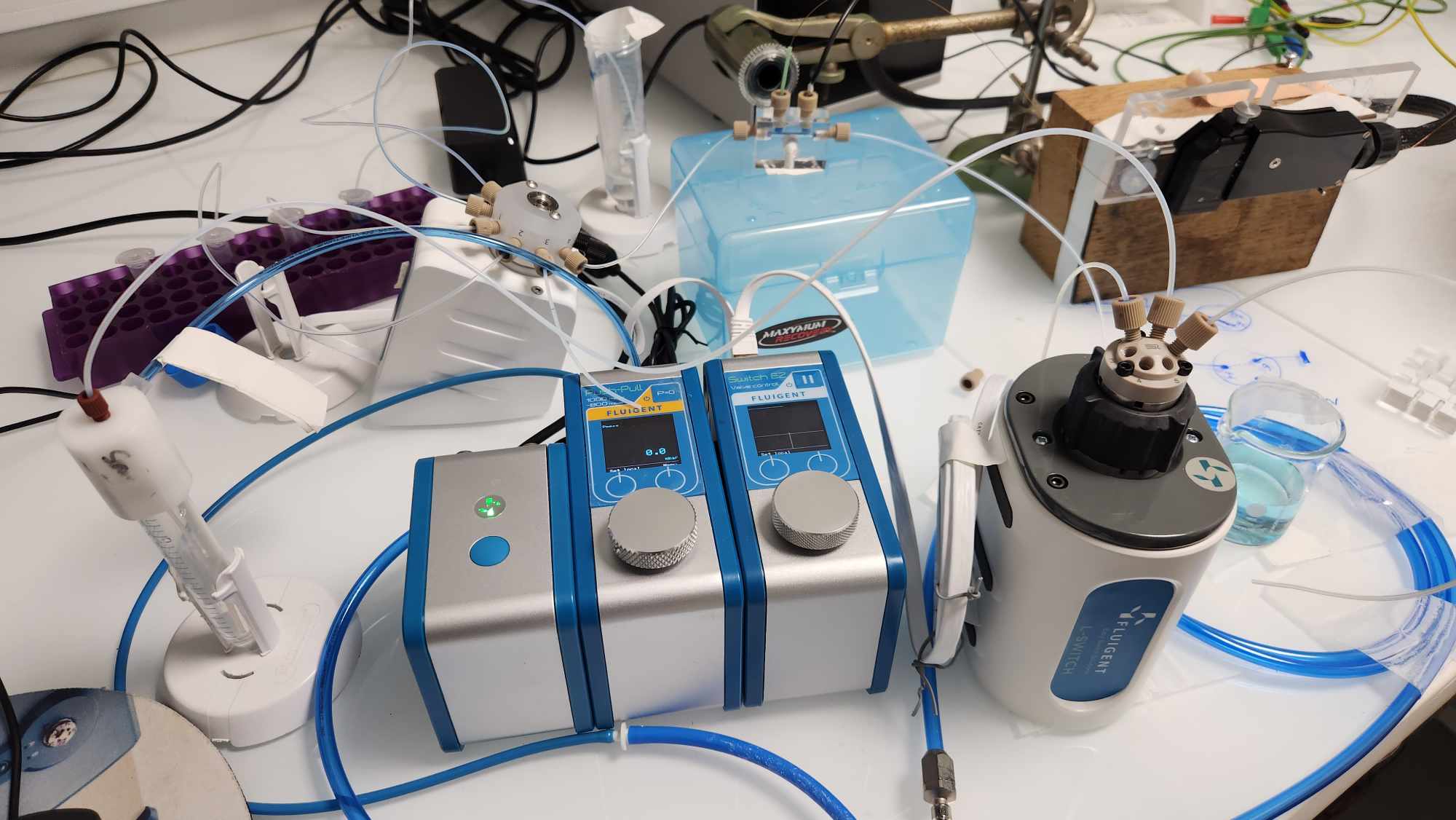
University of Birmingham
Prof. Philip Davies
Philip Davies has over 35 years of academic and industrial research experience. The aim of his current research is to achieve sustainable treatment and utilization of water resources in arid regions. His research areas include: desalination and water re-use, solar-powered cooling using seawater, seawater greenhouse technology, and negative emissions technologies. These areas contribute to the achievement of Sustainable Development Goals.
Philip participates in several international collaborations in regions including North Africa, the Middle East and the Indian sub-continent.
In 2018, his work gained the Green Gown ‘Research with Impact’ Award, for studies that led to the development of cooling and desalination technologies to create seawater greenhouses that are enabling food to be grown sustainably in arid world regions.
He is currently Principal Investigator in eight research projects, including bIo-mimetic and phyto-techNologies DesIgned for low-cost purificAtion and recycling of water, which he is coordinating. For more information on this project, please visit the India-H2O website.
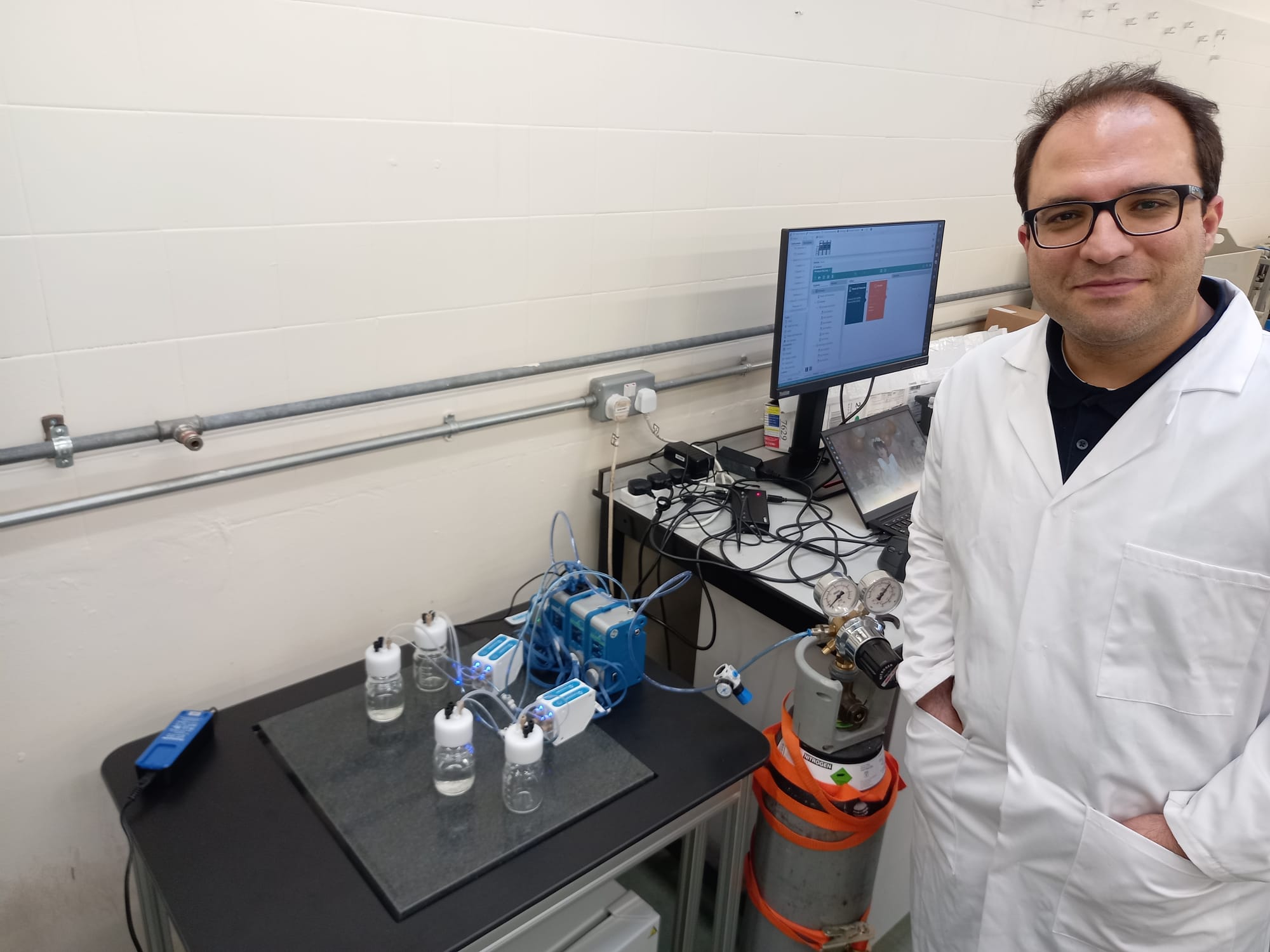
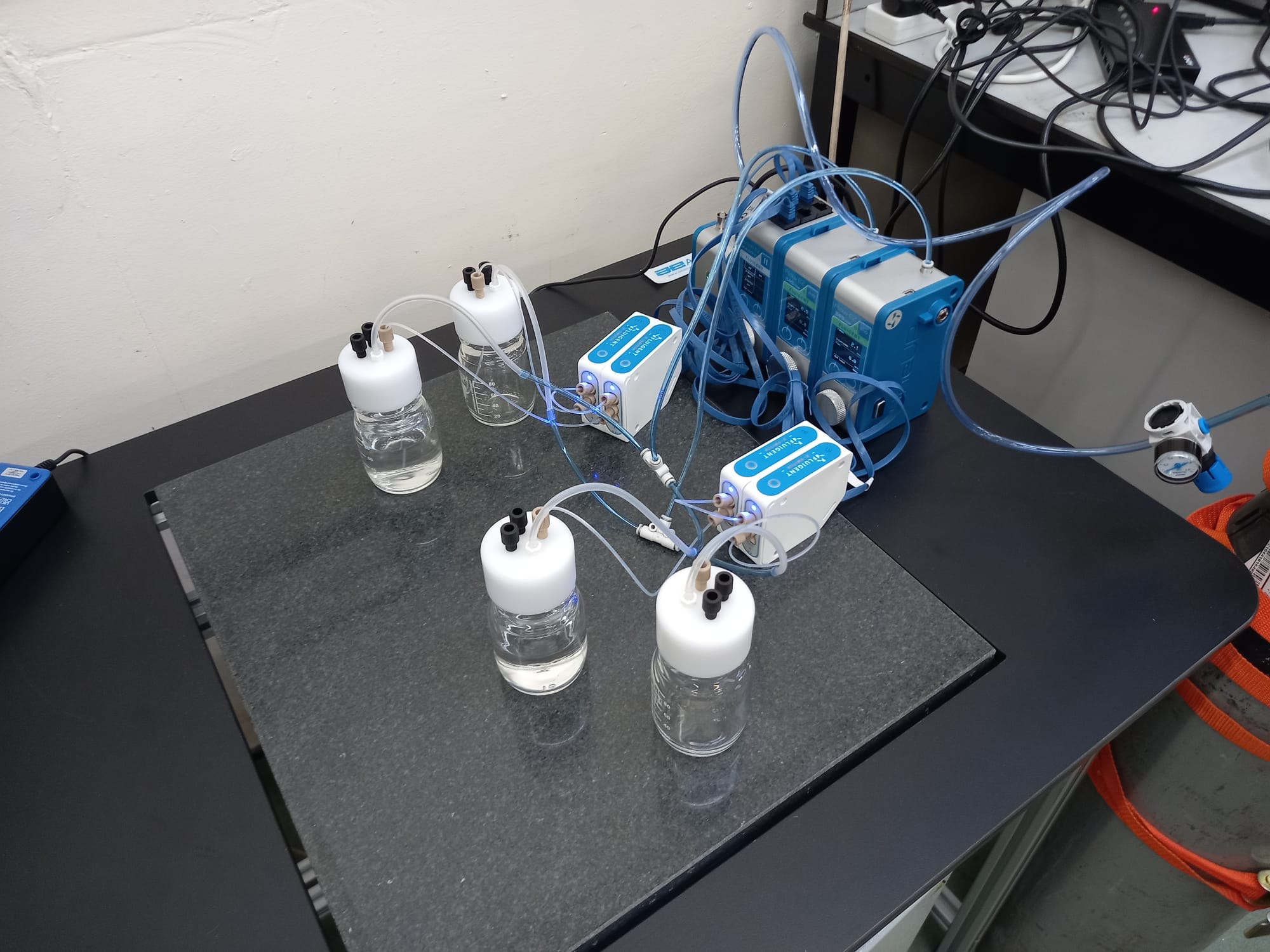
University of Hong Kong
Prof. Jinyao Tang
Current Research in “Study novel Nanorobot and artificial nanomotors”, “Develop new Energy Nanomaterials and Nanodevices”
Awards and Honours in “Outstanding Young Researcher of the University of Hong Kong in 2016/2017”, “Early Career Award 2014-2015, University Grants Committee , Hong Kong”
ESPCI Paris-PSL
Dr Cécile MONTEUX
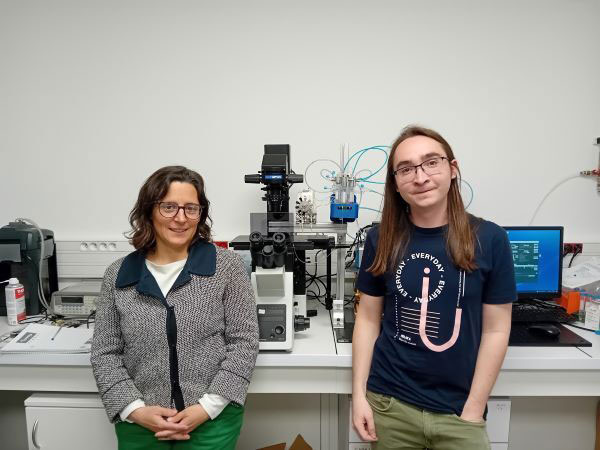
Interfacial materials, such as foams, emulsions, are composed of many bubbles and drops, stabilized either by surfactants, polymers or colloids. The question we tackle is : « how do molecular interactions and interfacial dynamics in the surfactant layers control the macroscopic properties of foams, emulsions or capsules? ».
We have a special interest in « reactive » systems, whose interfacial dynamics such as adsorption/desorption fluxes can be actively controled by an external parameter.
Examples include photoswitchable surfactants or thermoresponsive colloids. From a fundamental point of view, these reactive systems are molecular tools that enable to study how a tiny modification at the molecular scale has consequences at the mesoscopic and macroscopic scales.
Another topic of interest is the study of interfaces and wetting situations in which mass transfers and/or phase transitions occur, such as solidification by freezing, cross-linking, complexation, evaporation.
These solidification processes lead to local modifications of the interfacial tension or the viscosity at the nanometric scale, which have a huge impact on macroscopic interfacial behaviours.

